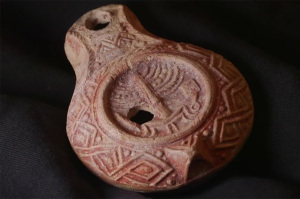How Pastors Survive a Difficult Church
There are great rewards in the pastoral call. And there are times that there is great pain. In this post I have asked Chris Bonts to share his experiences in a difficult church, one where he eventually left under pressure. I encourage you to get his newly-released eBook on this topic.
Thom: As much as you feel comfortable, will you share with us the story of your church?
Chris: For starters, every church is a difficult church on some level. After all, they are filled with fallen sinners and led by fallen sinners! The situation that prompted the writing of this book was a situation in which I was called to lead a church that faced a number of challenges, some of which I was ill-equipped to lead them through, others which the congregation (from my perspective) was unwilling to address.
Like many churches, my situation was comprised of factionalism, resistance to change, too much debt, a history of conflict, divisiveness, and short pastoral tenure. Each of those issues presents a challenge to pastoral ministry and leadership. When they are coupled with other issues, they can be overwhelming.
In addition to inheriting a church with a host of issues, I also inherited a church with tremendous administrative demands, which was a major area of weakness for me. My administrative shortcomings (which I have since addressed in significant ways) actually made my situation worse. I found it difficult to stay on top of issues, keep everyone informed of changes, cast vision, and motivate ministry teams to pull in the same direction in ministry in a church that size. In a typical church I might have overcome those issues in time to grow into the pastor this church needed. Given the lack of general church health and specific challenges this church faced, my lack of administrative expertise proved to be a major hurdle.
In addition to my church's history and my shortcomings, there was one key event that produced greater conflict within the church early in my tenure that seemed to solidify a couple of key groups in their opposition to my ministry. It was a church discipline issue that presented itself six weeks after my arrival at the church. This was not a minor case of disagreement, one in which I could bide my time and slowly bring the church along. It was a major issue of sexual sin that was exposed in a very public way. To refuse to address it would have meant a blatant disregard for Scripture and would have given the appearance that our church condoned the actions of the individual in question. In calling our church to pray for the repentance of the individual in question (without naming the person) and discussing what would happen should the person not repent, I started a firestorm of controversy and complaints that lasted until the day I left (I literally received email complaints about my handling of the situation four years after the fact).
This church had never discussed church discipline in her history, a fact confirmed by many longstanding members. The shock of such a discussion apparently encouraged several influential members to dig in their heels in opposition to their ministry. One man personally voted "no" for every item that came up in a business meeting after that event, just to make a point. Another member told me he made a point to stand up and vote "yes" triumphantly in the very first business meeting after my departure! Another lady made a point of saying loudly, "Praise God" when I announced my resignation from the pulpit. It was a challenging church to say the least.
Thom: How long were you into this ministry when you discovered it would be a difficult church?
Chris: I discovered soon after I arrived that it was going to be a much more difficult church than I had imagined. When I was a candidate for this church, I was told by numerous individuals that it was a great church, with tremendous potential, that it just needed a few programmatic tweaks before seeing some significant growth. Six weeks after I arrived, an unavoidable church discipline situation presented itself, which revealed just how many difficulties I would face. From that point forward, it never ceased to amaze me the lengths some folks would go to in an effort to criticize me over minor issues.
Thom: What are some of the signs that let you know it would be a very difficult ministry?
Chris: This question is unfortunately too easy for me to answer. I have personally counseled scores of pastors in difficult situations. There is a common challenge that presents itself in these types of churches. A truly difficult church, in my opinion, is marked by factions that care more about their vision for the church than obedience to Scripture and individuals who will attack a pastor personally in an effort to protect their desired direction for the church. I know from personal experience that I am not the only pastor who has been falsely accused of issues in an effort to convince others it was time for a change in leadership.
Thank you, Chris, for your transparency. Chris will next share with us how a pastor should leave a difficult church.





























